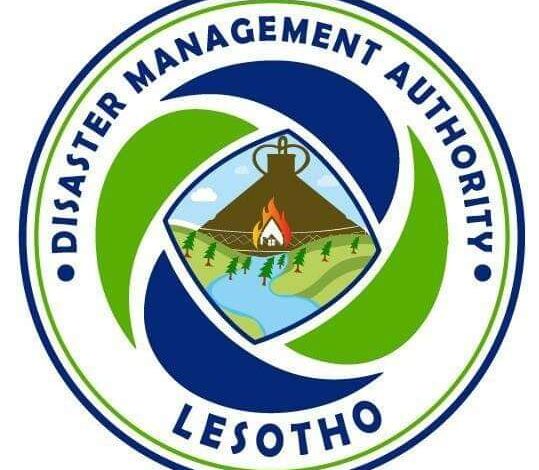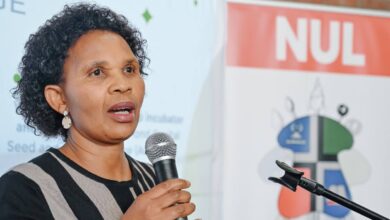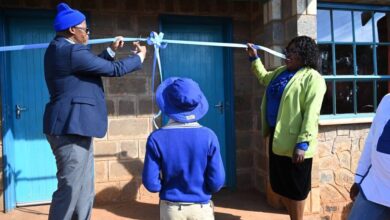Lesotho Faces Hunger Crisis: DMA Calls for M2 Billion in Emergency Aid

The Disaster Management Authority (DMA) has revealed that Lesotho urgently requires approximately M2,002,863,799.00 to provide immediate humanitarian assistance, implement resilience-building programs, and carry out developmental initiatives in response to the worsening hunger crisis. The revelation comes in the wake of Prime Minister Ntsokoane Matekane’s declaration of a state of emergency in July, highlighting the gravity of food insecurity plaguing the nation.
During a press conference held on Wednesday at the DMA’s head office, Chief Executive Mr. Reatile Elias outlined the dire situation and the coordinated efforts required to address the issue. Elias emphasized that the country’s hunger crisis is largely driven by the El Niño weather phenomenon, which has led to prolonged droughts, significantly reducing food production and deepening food insecurity in many parts of Lesotho.
The El Niño-Induced Food Insecurity Response Plan and Appeal Statement for 2024 was presented during the briefing, offering a comprehensive approach to tackle the ongoing crisis. Elias explained that the overall objective of the plan is to mount a timely, consistent, effective, and coordinated response aimed at saving lives, protecting property, and preserving livelihoods in the most affected communities.
“This crisis demands urgent attention,” Elias stated. “Our immediate focus is to provide life-saving humanitarian assistance, but at the same time, we need to think about long-term resilience building. Communities should be empowered to withstand future shocks, ensuring that a similar crisis does not strike with the same severity.”
The response plan, which includes both immediate relief and long-term solutions, focuses on key areas such as food distribution, water and sanitation services, health support, and agricultural recovery. The appeal also stresses the need to build sustainable solutions by investing in infrastructure, improving agricultural practices, and developing climate-resilient communities.
Lesotho’s food security situation has been deteriorating steadily, with over 500,000 people estimated to be facing severe food shortages. Many households are already depleting their limited food stocks, and without swift intervention, the hunger crisis could deepen in the coming months, particularly for rural populations who rely heavily on agriculture for their sustenance.
Elias also pointed out that the DMA’s call for M2 billion in aid is a reflection of the widespread impact of the crisis, with both rural and urban communities feeling the effects of food scarcity. “We are calling on international partners, humanitarian organizations, and the private sector to join us in addressing this urgent situation. We need all hands on deck to mitigate the effects of this crisis and support Lesotho in rebuilding,” he urged.
The Prime Minister’s state of emergency declaration underscores the severity of the situation, with hunger increasingly threatening not just livelihoods but the overall stability of communities across Lesotho. The government, along with the DMA, is working to engage key stakeholders both locally and internationally in order to secure the necessary funding and resources to implement the response plan effectively.
Elias reiterated that without immediate action, the country faces a humanitarian disaster. The DMA is committed to rolling out programs that address both immediate food needs and the underlying causes of food insecurity, including improving access to clean water, strengthening health systems, and promoting climate-smart agriculture to better equip farmers for future challenges.
As Lesotho grapples with the effects of El Niño and the growing hunger crisis, the M2 billion appeal is seen as a lifeline for thousands of families struggling to survive. The hope is that with coordinated efforts and sufficient financial support, the country can prevent further suffering and begin to recover from the devastating impacts of this natural disaster.
The DMA remains hopeful that the international community will respond swiftly to the appeal, enabling Lesotho to safeguard its most vulnerable populations and build a more resilient future.




